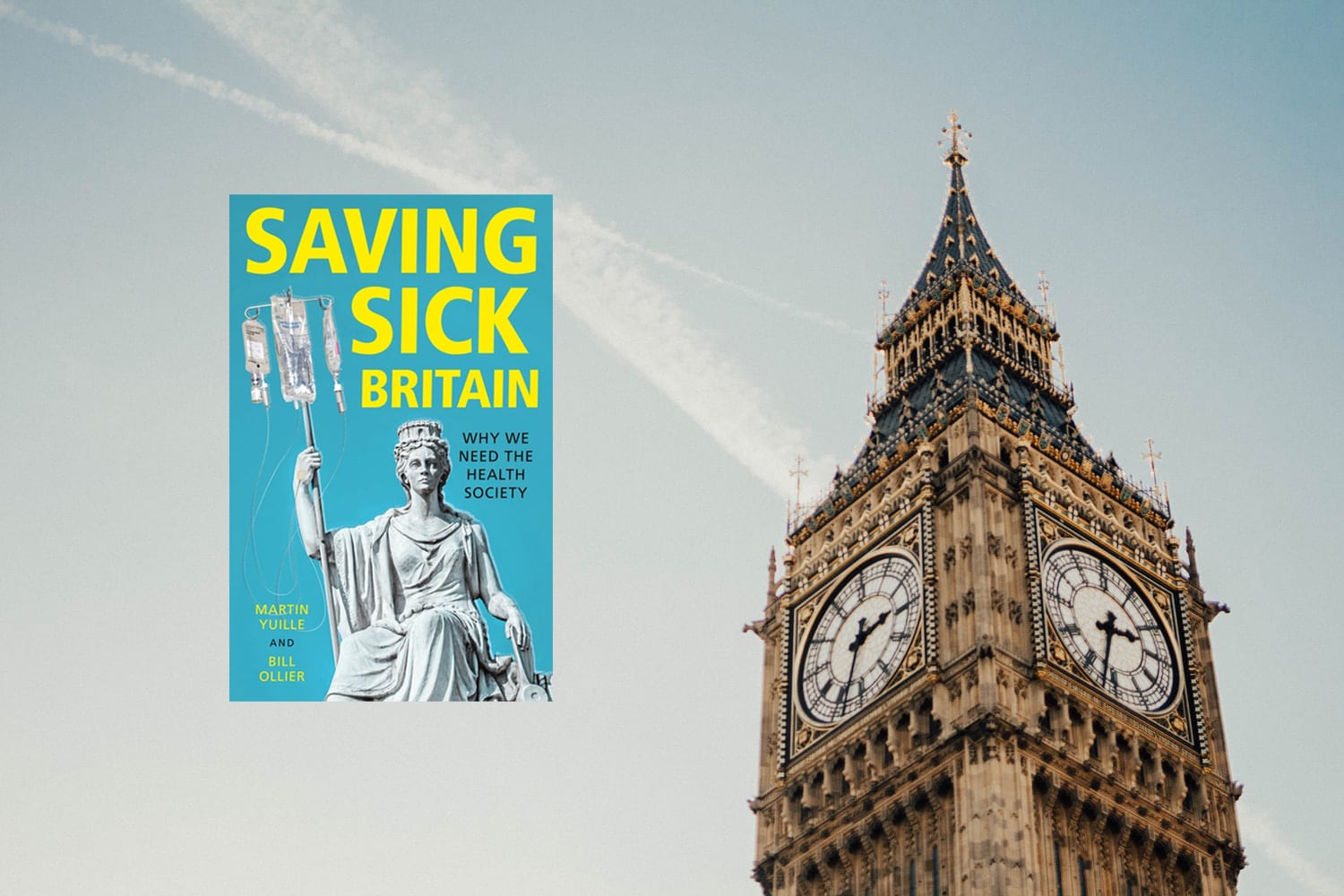 Richard Churchill is a ‘retiring GP’ in Nottingham and former Associate Clinical Professor at the University of Nottingham.
Richard Churchill is a ‘retiring GP’ in Nottingham and former Associate Clinical Professor at the University of Nottingham.
Saving Sick Britain is written for a broad, non-medical audience with the aim of stimulating a radical rethink of disease prevention and proposing a fundamental new approach: the ‘Health Society’.
I started reading with a large degree of scepticism. First, the book was introducing yet another new approach to health promotion; second, I feared that the authors backgrounds in genomics and epidemiology might result in an unbalanced perspective; my scepticism was reinforced by inclusion of some ill-advised content such as the description of hypertension as a symptomatic disease, and a narrow and outdated view of the general practice workforce as family doctors, practice nurses, and ‘auxiliaries’.
However, I could not dispute the authors description of the seriousness and impact of common long-term conditions (using diabetes, heart disease, obesity, cancer, and depression as examples), the way that they reduce both lifespan and healthspan, and their association with social inequalities.
… the massive impact of long-term conditions over many years has been largely neglected.
While I question their labelling as ‘modern plagues’, the timing of the book’s publication to some extent reinforces one of its key arguments — billions of pounds have been spent on reducing the effects of a single infection, while the massive impact of long-term conditions over many years has been largely neglected.
I was intrigued by discussion about the interconnectedness of all aspects of life ranging from the genome to the exposome (all exposures influencing an individual), homeostasis, biological relativity, and the influence of social networks on non-communicable diseases. The authors proposed definition of health as ‘the optimal satisfaction of needs’ also represents a valuable practical tool.
Having provided compelling arguments for the need for radical change the authors proceed to describe their concept of a Health Society. Just as they argue the interconnectedness of the risks for disease, they propose a systems approach to its prevention, suggesting that, at its heart, the supreme purpose of public policy in any society needs to be the ‘optimal satisfaction of human needs that define health’.
Institutional reform would be required with the ambitious, but not entirely unreasonable, proposal that ‘health’ should be a priority for every government department. Each would then be accountable to parliament through a senior minister. Such integration and ‘joined up thinking’ would extend to local government and communities.
… maybe now, in the wake of the coronavirus pandemic … there will be a greater appreciation that ‘we are all in this together’ …
Unfortunately, at this point the proposals start to enter the realms of fantasy: a key component of the proposed Health Society is a super-enhanced NHS health check for individuals that would be carried out by yet another new breed of degree-level primary healthcare staff called a ‘Health Society Professional’ (HSP).
The health check would include measurement of a whole range of risk biomarkers (mostly still to be identified) and the HSP would provide feedback on the results, not solely to individuals but also to groups. They would promote changes in behaviour at communal level facilitated by Health Society Champions, who would develop social networks (such as clubs) based on individuals interests.
Widespread data sharing would be essential, and active monitoring by epidemiologists would involve identifying and disseminating effective interventions. While superficially attractive (if ignoring many of the hypothetical and logistical barriers), this model seems to overlook some of the complexities of human behaviour perhaps best illustrated by the inverse care law where we could anticipate that participation in any such scheme would be greatest by those at least need.
Despite its utopian perspective, Saving Sick Britain is well motivated and informed. A key message at its centre is ‘your health is my health’, recognising the vital role of both individuals and society in improving the nation’s health. But is this concept new? Not particularly — 45 years ago there was a small publication entitled Prevention and Health: Everybody’s Business.1 But maybe now, in the wake of the coronavirus pandemic, and the impact it has had on society, there will be a greater appreciation that ‘we are all in this together’, with motivation to bring about change at every level. Saving Sick Britain certainly provides food for thought.
Reference
1. Department of Health and Social Security. Prevention and health: everybody’s business. London: HSMO, 1976.
Featured book
Martin Yuille and Bill Ollier. Saving Sick Britain: Why We Need The Health Society. Manchester University Press, 2021, HB, 272pp, £9.65, ISBN-13: 978-1526152282.
Featured photo by Kate Krivanec on Unsplash






